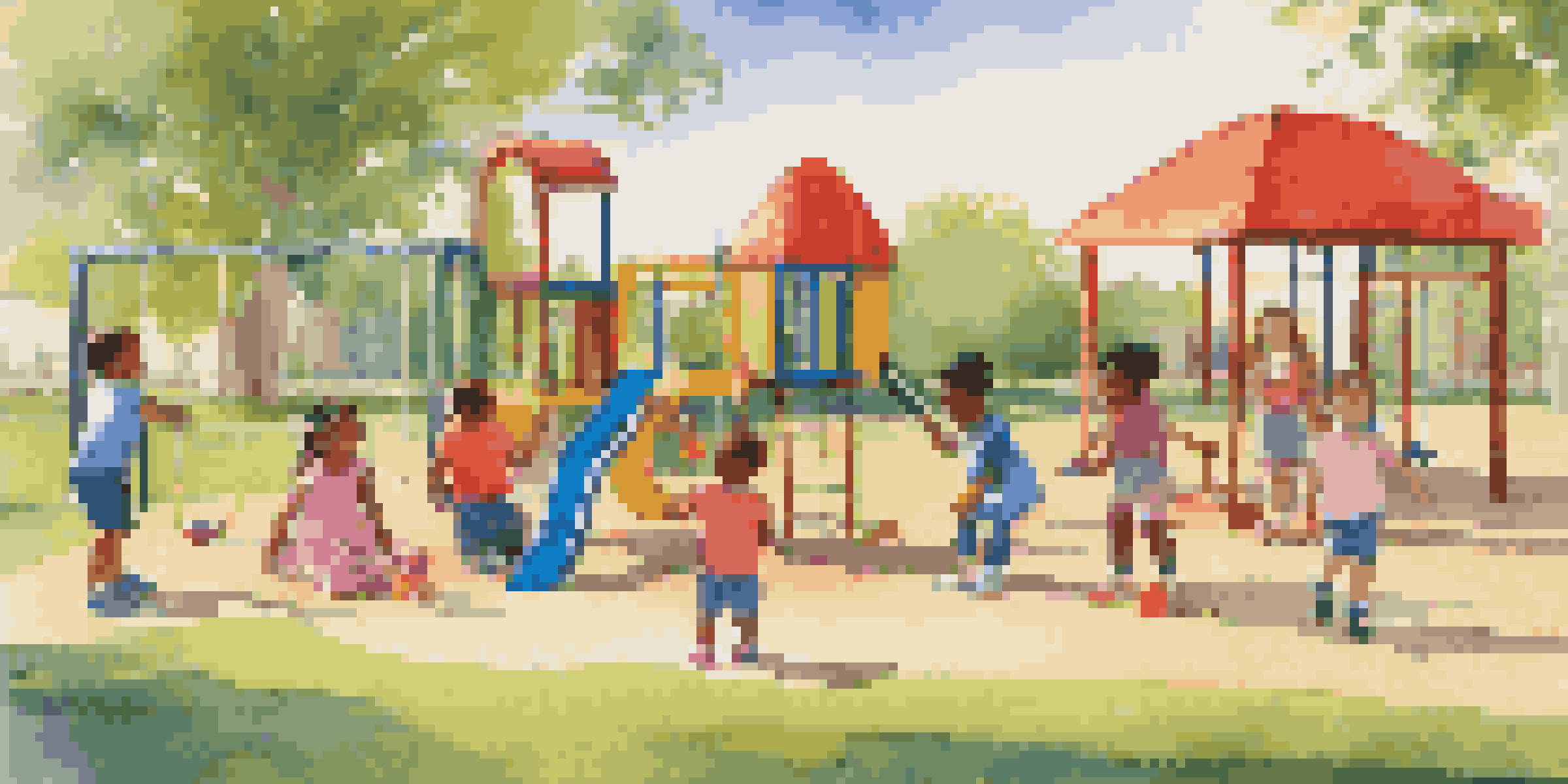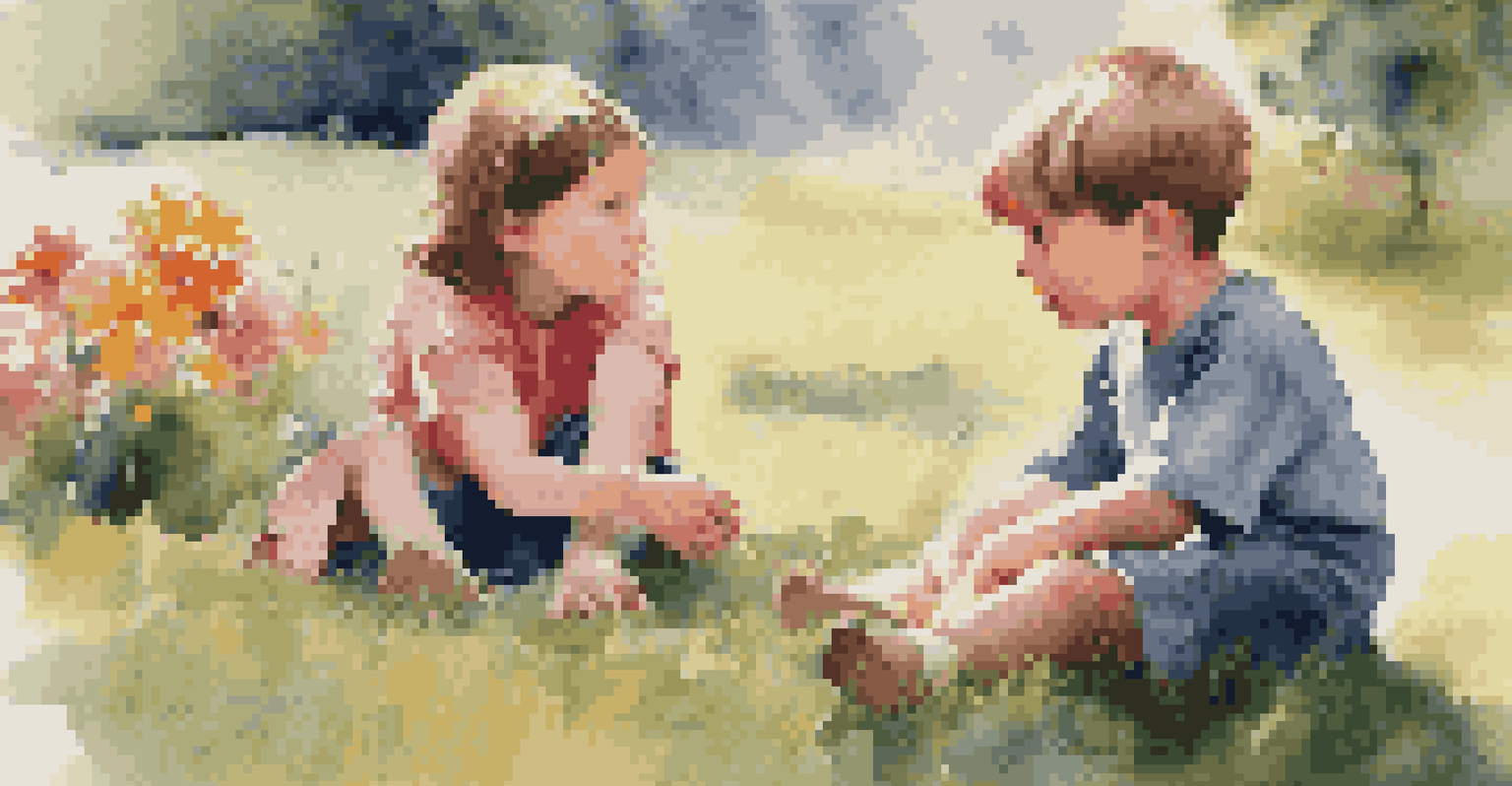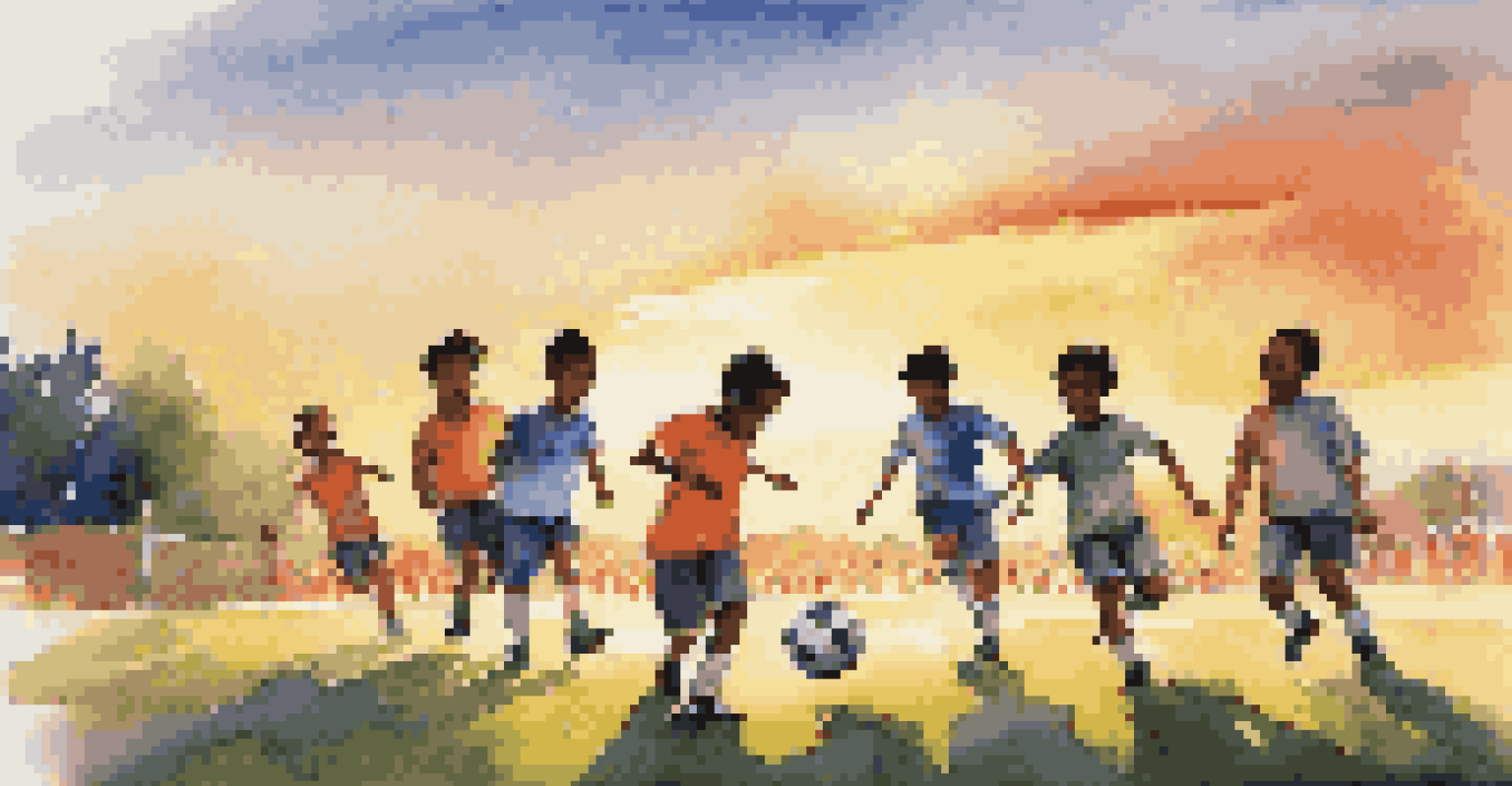Utilizing Play to Develop Conflict Resolution Skills in Kids

Understanding Conflict Resolution in Early Childhood
Conflict resolution is a crucial life skill that helps children navigate disagreements and build healthy relationships. At a young age, kids face various conflicts, whether it's sharing toys or taking turns. Understanding how to resolve these issues can set the foundation for effective communication and empathy as they grow older.
Play is the highest form of research.
Children may not instinctively know how to handle conflicts, which is where play comes in. Through games and interactive activities, they can practice problem-solving and learn to express their feelings. This hands-on experience allows them to grasp complex social dynamics in a fun, engaging way.
Moreover, play provides a safe space for kids to experiment with different approaches to conflict. Whether they're role-playing a scenario or engaging in cooperative games, they can explore solutions without the fear of real-world consequences. This freedom to explore helps solidify these skills for future interactions.
The Role of Play in Learning Conflict Resolution
Play is often referred to as the 'work of children,' and it plays a vital role in their development. When children play, they're not just having fun; they're also learning valuable life skills, including how to mediate conflicts. This natural process allows them to practice negotiating and compromising in a low-stakes environment.

For example, during group play, children might disagree on the rules of a game. This disagreement prompts them to communicate their perspectives and find common ground. By navigating these small conflicts, they gain confidence in their ability to resolve larger issues in the future.
Additionally, engaging in team sports or cooperative games fosters teamwork and collaboration. These settings encourage kids to work together, understand different viewpoints, and celebrate shared victories. As they learn to celebrate and handle both wins and losses, they build resilience and empathy, essential components of conflict resolution.
Types of Play That Promote Conflict Resolution Skills
Not all play is created equal when it comes to teaching conflict resolution. Certain types of play, like role-playing games or cooperative tasks, are particularly effective. In these scenarios, children can step into different roles, gaining insight into others' feelings and perspectives, which is crucial for resolving conflicts.
To be able to ask a question clearly is two-thirds of the way to getting it answered.
For instance, a simple game where kids act out a scenario involving a disagreement can spark discussions about feelings and solutions. This imaginative play allows them to think outside the box and consider various ways to approach a problem. The creativity involved also makes the learning process enjoyable and memorable.
Furthermore, activities that require teamwork, such as building a fort or completing a puzzle, can help children practice collaboration. As they work together toward a common goal, they learn to communicate effectively and resolve any disagreements that arise. This experiential learning reinforces their ability to handle conflicts outside of play.
Encouraging Open Communication During Play
One of the keys to developing conflict resolution skills through play is encouraging open communication. Children should feel comfortable expressing their thoughts and feelings, especially when conflicts arise. Parents and educators can model this behavior by actively listening and validating their emotions during playtime.
For example, if two children are arguing over a toy, an adult can step in to facilitate communication. Asking questions like, 'How do you feel about that?' or 'What do you think would be a fair solution?' encourages kids to articulate their thoughts. This practice not only helps them find common ground but also teaches them how to communicate effectively in challenging situations.
Incorporating reflection after play can also enhance this learning process. After a game, discussing what went well and what could be improved can help children understand the importance of communication in resolving conflicts. This reflection solidifies the skills they've practiced during play and prepares them for future interactions.
Setting the Stage for Successful Play
Creating an environment conducive to positive play experiences is essential for teaching conflict resolution. This means providing children with a variety of play materials and opportunities for both structured and unstructured play. A rich play environment encourages exploration and experimentation, setting the stage for natural conflict resolution scenarios.
Additionally, adults should supervise playtime without dominating it. By observing, they can identify moments where conflicts arise and step in strategically to guide children in resolving them. This hands-off approach allows kids to learn independently while still having the support they need.
Moreover, it’s important to foster an inclusive atmosphere where all children feel valued and respected. When kids feel safe and accepted, they’re more likely to engage freely in play and be open to resolving conflicts. This sense of belonging enhances their social skills and equips them to handle disagreements effectively.
The Impact of Team Sports on Conflict Resolution
Team sports are an excellent avenue for children to develop conflict resolution skills. As they practice working together toward a common goal, they learn to navigate the complexities of teamwork. This environment naturally presents opportunities for conflict, whether it’s a disagreement about strategy or sharing equipment.
In team settings, children must communicate openly and listen to each other's perspectives. For instance, if a teammate feels that their ideas aren't being considered, they have the chance to voice their concerns. This experience teaches them how to handle conflicts constructively and reinforces the importance of collaboration.
Moreover, the competitive nature of sports introduces the reality of winning and losing. Learning to cope with disappointment and celebrating achievements together fosters emotional resilience. This emotional growth is crucial for effective conflict resolution, as it prepares kids to handle future challenges with grace.
Conclusion: Embracing Play as a Learning Tool
Utilizing play to develop conflict resolution skills in kids is not just beneficial; it's essential. Through play, children can practice navigating disagreements in a supportive environment, which builds their confidence and social skills. As they learn to communicate and collaborate, they become better equipped to handle conflicts in various aspects of their lives.
It's vital for parents, educators, and caregivers to embrace playful learning as a powerful teaching tool. By setting the stage for positive play experiences, encouraging open communication, and providing diverse opportunities for interaction, we can help children cultivate these essential skills.

Ultimately, the lessons learned through play will stay with children long after the games have ended. With a solid foundation in conflict resolution, they are more likely to grow into empathetic, understanding individuals who can navigate life's challenges with ease.